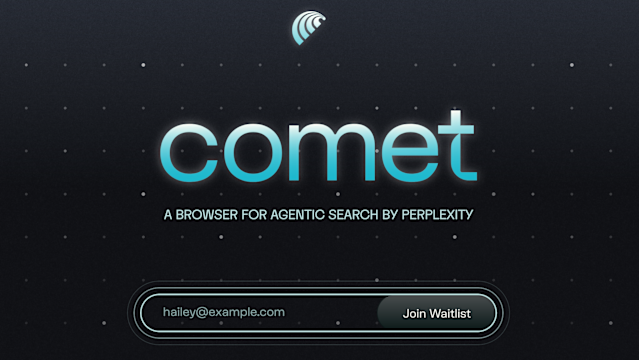CES 2026: How Emerging Technology is Shaping the Year Ahead
An expert breakdown of CES 2026, exploring how robotics, intelligent devices, and next‑gen computing are shaping technology and professional workflows in 2026.

Perplexity's new AI browser, Comet, aims to replace recruiters and admin assistants by automating tasks like sourcing candidates, managing emails, and scheduling meetings.
What if your browser could do your job? That’s not science fiction anymore. It’s the reality that Perplexity’s CEO, Aravind Srinivas, is betting on with the launch of Comet, an AI-native web browser designed to replace two of the most common white-collar roles: recruiters and administrative assistants.
Yes, you read that right. Comet isn’t just a search tool. It’s a fully integrated, AI-powered professional assistant that can read, write, analyze, and act—across your digital workspace.
Table of contents [Show]
Unlike traditional browsers that passively display information, Comet is active, intelligent, and deeply connected to the apps you already use.
Built from the ground up with generative AI at its core, Comet has direct access to platforms like LinkedIn, Gmail, Google Calendar, Notion, Slack, and more. It doesn’t just browse these platforms—it understands and acts on them.
Here’s what Comet can do out of the box:
Srinivas has been clear about the intent behind Comet: it's not a tool for humans—it’s a replacement for certain human roles.
That may sound controversial, but it reflects a broader shift happening across industries. With generative AI becoming more capable of performing structured, text-based tasks, administrative and recruiting jobs are especially vulnerable to automation.
These roles rely heavily on managing communications, sorting information, and coordinating schedules. Comet is specifically engineered to do those things faster, more accurately, and without fatigue.
This is part of a larger vision Srinivas calls “AI-native work”, where digital agents don't just assist—they actually do the work.
Imagine this: you sit down at your desk and open Comet. Instead of checking 10 different apps, you simply ask:
“Find five qualified marketing candidates in New York, draft a custom outreach email, and set up interviews for Friday.”
Within seconds, Comet scans LinkedIn, filters resumes, writes personalized messages, and books time on your calendar. No toggling between tabs, no data entry, no back-and-forth.
This isn't just a time-saver. It's a redefinition of what office productivity means.
There’s no sugarcoating it—tools like Comet signal a disruptive wave for entry- to mid-level white-collar jobs. While AI can't replace the intuition and relationship-building skills of top-tier recruiters or executive assistants just yet, it can and will replace the majority of routine work they perform.
Companies will likely shift from hiring large internal teams to deploying AI workflows, which are cheaper, faster, and scalable. That could lead to layoffs, reskilling demands, and a rethinking of traditional career paths in the corporate world.
For startups and enterprises alike, Comet offers something most tools don’t: a full-stack AI employee embedded in your browser.
Instead of stacking multiple tools and integrations, Comet serves as a single intelligent layer over all your productivity platforms. That means less training, less friction, and more results.
Businesses that adopt Comet early will likely:
Comet isn’t just a product. It’s a signal that AI is no longer a support tool—it’s becoming the worker.
Whether you're excited or anxious about this shift, one thing is clear: the age of AI-native productivity has arrived, and it's going to change how we work, hire, and manage our time.
The big question is: Are we ready?
An expert breakdown of CES 2026, exploring how robotics, intelligent devices, and next‑gen computing are shaping technology and professional workflows in 2026.
A thoughtful exploration of how modern AI tools are reshaping professional productivity in 2026, with practical insights, real world scenarios, and an honest look at limits and tradeoffs.
Looking to supercharge your productivity? Explore our comprehensive guide to the top 10 AI productivity tools offering free trials in 2026. From intelligent writing assistants to automated project management, discover which AI tools can save you hours every week. Get detailed comparisons, pricing breakdowns, and expert tips to choose the perfect tools for your workflow.
